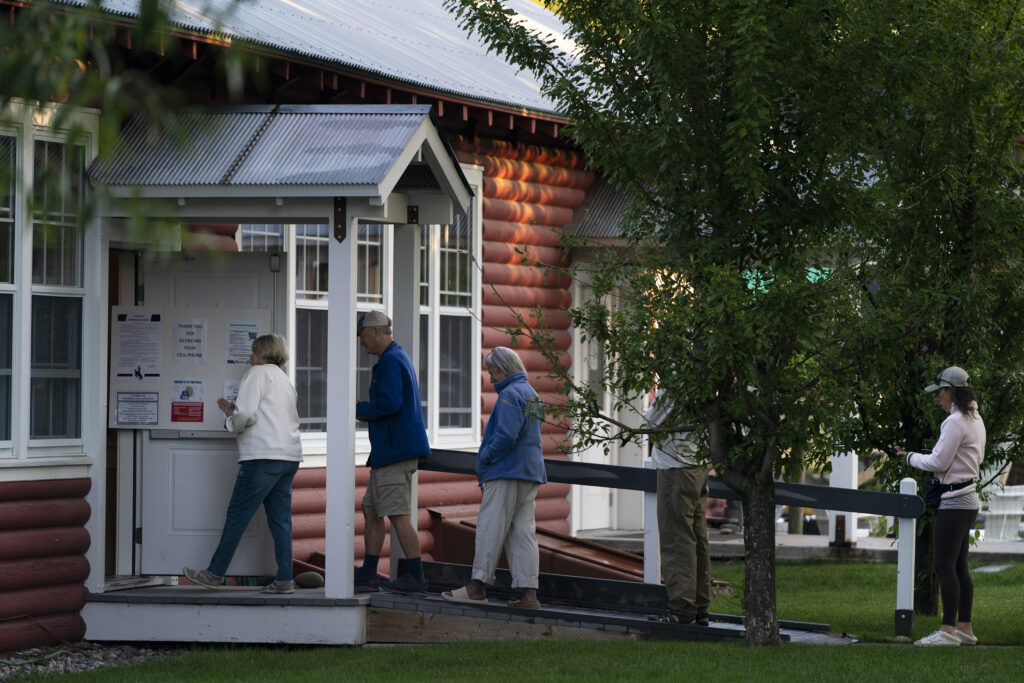
Wyoming’s new proof of citizenship law is facing a lawsuit that claims it will “make it harder for eligible citizens to vote.”
On Friday, the Equality State Policy Center filed suit to block House Bill 156 (HB 156), which requires anyone registering to vote to present documentary proof of U.S. citizenship. The group argues the law violates the First and 14th Amendments to the U.S. Constitution by imposing unjustified barriers to voting, especially for women, young, Hispanic and low-income voters.
“When HB 156 becomes effective, it will impose new, burdensome, and entirely unnecessary requirements that will make it harder for eligible citizens to vote,” the complaint states. “The result will be the exclusion and disenfranchisement of citizens.”
The proof of citizenship requirement adopted by Wyoming is similar to the voter suppression tool that President Donald Trump is seeking to impose nationwide thru his executive order on voting issued in March, as well as thru the SAVE Act in Congress.
Wyoming ranks 47th in voter registration and has some of the lowest turnout in the nation — just 44.4% of eligible voters cast ballots in 2022. But state lawmakers argued HB 156 is needed to protect election integrity.
“There is no evidence of any meaningful voter fraud involving noncitizens or otherwise,” the lawsuit says, citing data that just 3.6% of Wyoming’s population is foreign-born, one of the lowest rates in the country.
Even Gov. Mark Gordon (R), who allowed the bill to become law without his signature, warned it would “invite litigation.”
HB 156 requires prospective voters to show documentary proof of citizenship, such as a U.S. passport, birth certificate or naturalization papers to register. The lawsuit details how many eligible voters simply lack these documents or cannot obtain them easily, especially under tight deadlines or financial constraints.
For women who have changed their names after marriage, obtaining updated documents can mean navigating a bureaucratic “maze,” often requiring court orders, notary visits and coordination with the Social Security Administration. All before a voter registration deadline.
“Since Wyoming allows same-day registration, many people will only learn that they lack sufficient documents on election day itself,” the complaint alleges.
The lawsuit calls HB 156 more extreme than similar laws passed in Kansas, Arizona and New Hampshire — all of which have been struck down or are also facing legal challenges.
The Equality State Policy Center is asking the court for “declaratory and injunctive relief,” asserting HB 156 imposes unconstitutional burdens on the right to vote. Unless the court intervenes, the law will take effect on July 1, just months before the 2025 municipal elections and ahead of the 2026 midterms.
